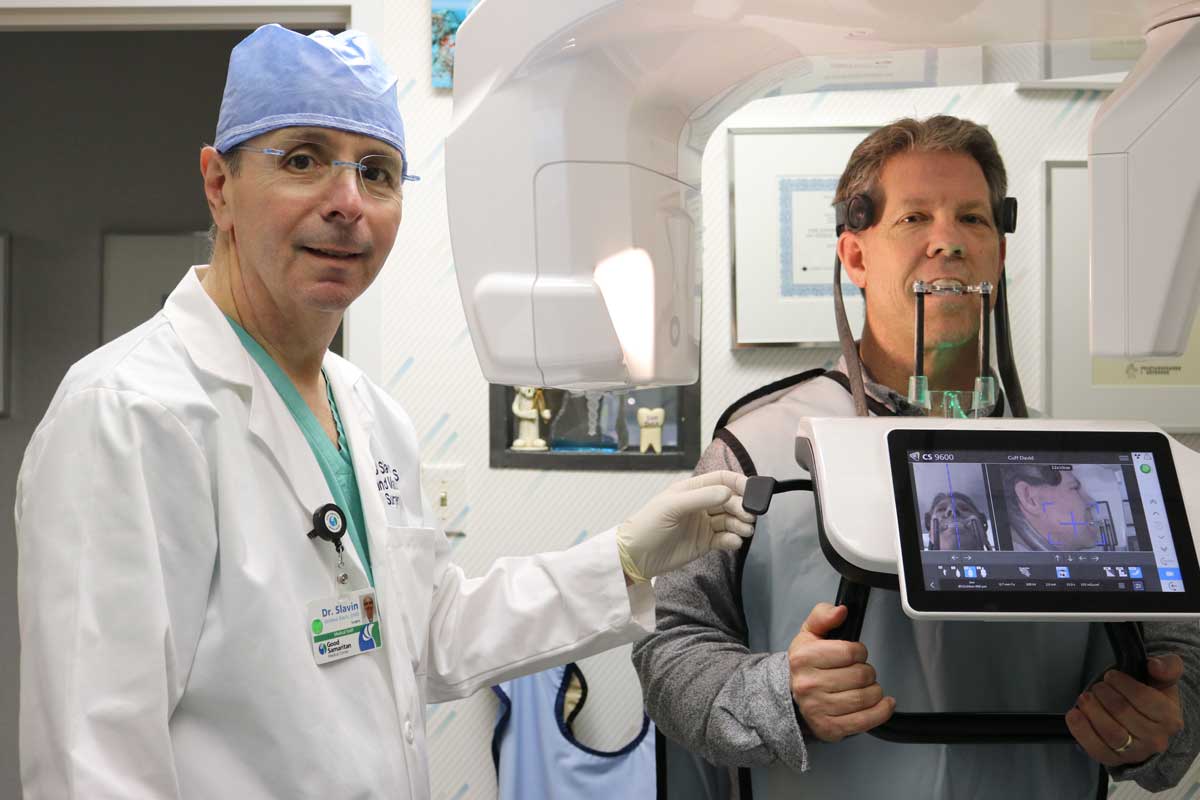A Dental Implant Interview With Dr. Slavin
Getting dental implants is a big deal, and it is important to make sure you have all the information you need to confirm if dental implants are right for you. What are the benefits, where should you get them, what is the procedure like? These are all questions that probably go through your head when thinking about dental implants. We sat down with Dr. Slavin to address some of these frequently asked questions.
Q: What are the benefits of getting dental implants?
A: There are many benefits that our patients see with dental implants. Cosmetic improvement, more comfort, improved speech, higher confidence, and more convenient eating to name a few. And it is a great value for the investment. You use your teeth 24 hours a day, 7 days a week, all year long, so the benefits are long lasting and can be experienced constantly.
Q: What is the dental implant procedure like?
A: We ensure that the patient is comfortable and use sedation to minimize any pain before, during, or after the procedure. Then, we locate where the implants will go, and using cutting edge technology and the finest equipment, we insert metallic implants into the jawbone to have the new teeth mounted on top. Then a process called “osseointegration” begins to take place, which fuses the implants to the jawbone. Thanks to this process the implants should never slip, loosen, or make any noise with use. Once the procedure is completed we discuss all postoperative instructions with the patient, and thanks to the high quality care at Good Samaritan many patients are good to go the next day and will get back to their work & daily lives within 24 hours.
Q: What makes Good Samaritan Dental Implant Institute the best choice for getting dental implants?
A: Here at Good Samaritan we provide personalized dental implant care. Which means, everything revolves around the patients’ personal needs, medical history, and schedule. We have expert staff, state of the art facilities, and use only the best equipment & methods for our procedures. I have over 25 years of experience as a practicing physician and am board certified by the American Board of Oral & Maxillofacial Surgery. Our patients get peace of mind knowing that they are in good hands, and they receive unmatched patient care and comfort here at Good Samaritan. We go so far as to give our patients annual dental implant follow-ups that are free for life.
Q: What can prevent someone from being a candidate for dental implants?
A: There are a few medical factors that could prevent a person from being a good candidate. Uncontrolled diabetes, chemotherapy, radiation therapy, parathyroid disorders, and rare bone disorders or bone marrow cancer are all limiting factors. A patient may also be less equipped for the procedure with poor quality of bones, or if they have low sinuses or nerve bundles.
Q: How does one care for dental implants after their procedure?
A: The success of the implants will be greatly influenced by how well the patient maintains them. You can care for them the same way you would do with your normal teeth. It is important to brush and floss daily to ensure longer-term success. They should be cleaned by a hygienist trained in maintaining dental implants and examined by the surgeon every three to four months.
Conclusion
That was some great information! Now let’s summarize what we just read:
– Dental implants can grant you a great number of benefits, and these benefits impact your life constantly on a daily basis for years and years and years to come.
– The procedure is safe and uses the best of the best with regards to equipment and surgical methods, ensuring the most comfort possible for the patient.
– Good Samaritan Dental Implant Institute has expert staff with decades of experience, and patients get an annual follow-up appointment that is free for life!
– There are some physical and medical factors that could prevent a person from being a good candidate for dental implants, make sure to talk with an expert to see if they are right for you.
– To maintain the dental implants, you care for them the same way you take care of real teeth. Make sure to have them cleaned and examined by a dental implant professional 3-4 times a year.
That’s everything! Hopefully this information helps you on your way to determine whether dental implants are right for you, and clears up some of the “unknowns” that you might have had floating around your head.
If you have more questions that aren’t addressed here, schedule a free consultation with Dr. Andrew Slavin to cover any and all dental implant concerns.


